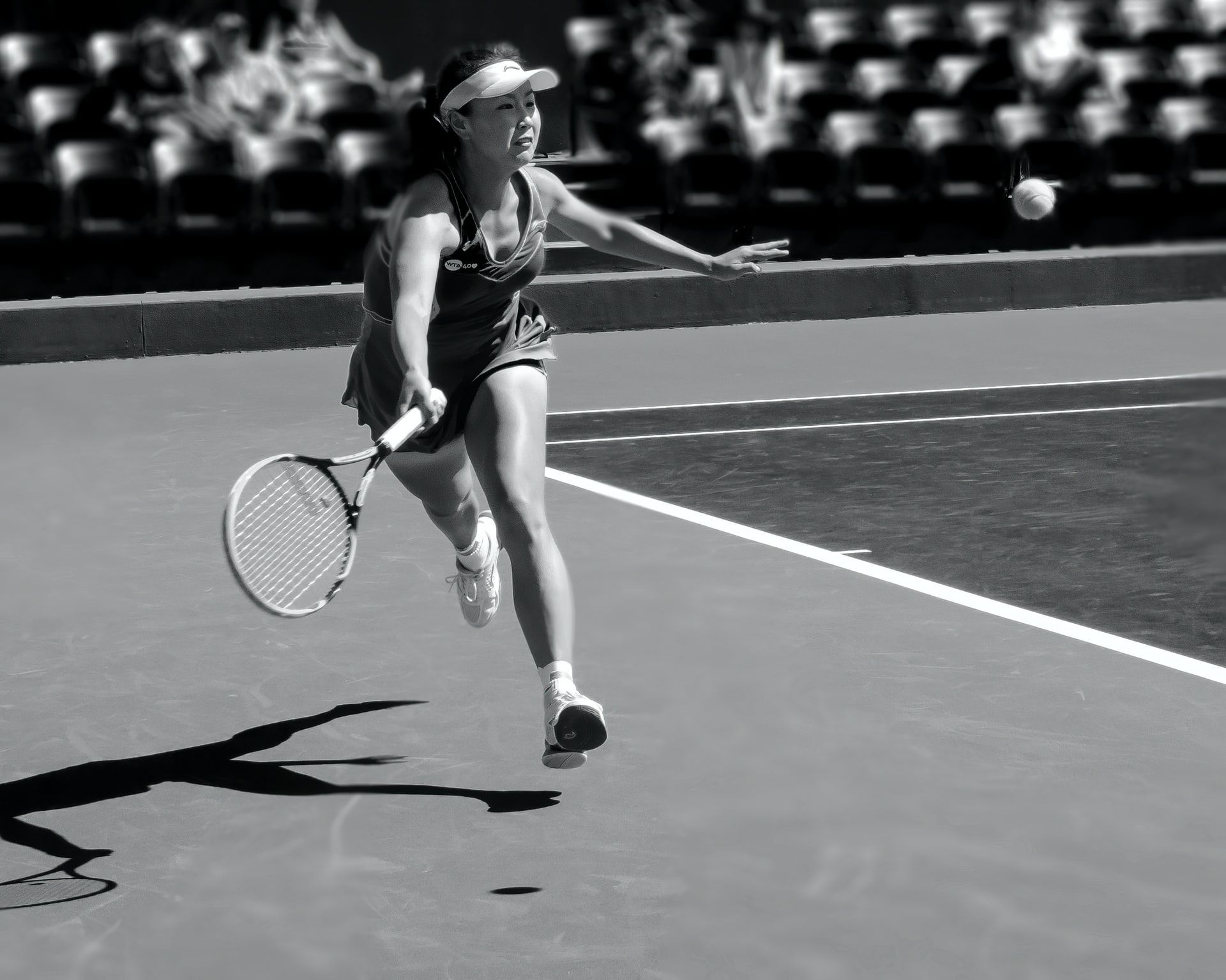
In part one of this series, Champion’s Mind creator Dr. Jim Afremow answered questions from athletes and high school and college coaches. The topics we covered included modeling mental toughness, how to build confidence, concentration, composure, and commitment (aka the 4 Cs), and how to help players deal with anxiety, depression, and other COVID-19-related mental health issues. In this second installment, Jim shares his expertise on handling criticism and improving focus, and offers some takeaway tips for improving mental toughness.
1. I am a former college tennis player. How important do you feel mental toughness is in recreational sports?
In some ways, mental toughness is just as important in recreational sports as it is for professional athletes. You probably have a day job and so don’t have as much time to practice or compete as you’d like. So you need to make the most of your opportunities to get better in an efficient manner. One of the best ways to do this is to work on your mental skills for a few minutes a day, every day, which is what the Champion’s Mind app allows you to do.
Mindset ultimately drives behavior, so the mentally tougher you are, the better your results will be and the more fun you’ll have. The definition of mental toughness is staying positive and proactive under the most adverse conditions. If you’ve had a bad day at work, you need to put that behind you and mentally switch gears for an evening match. Your mental game can be the ultimate difference maker. Everyone you’re playing against has a busy schedule and limited time to train. By developing a gold medal mindset, you’re giving yourself a distinct advantage.
2. What are some practical, short exercises that can improve mental toughness?
At various times throughout the day, we all encounter distractions and things that make us frustrated. One way to practice being mentally tough is to reframe these things that you might normally think of negatively in a positive way. View them as challenges to meet rather than threats to avoid. Whether it’s getting stuck in traffic, a pile of work on your desk, or a hard workout, tell yourself, “Today is my Olympics” and find a way to make the best of it. Take a situation that you’d usually just try to get through and turn it into something to grow through.
Another simple way to develop mental toughness is to reflect on how you overcame difficult circumstances in the past. What did you say to yourself in these trying circumstances to elevate your mindset? Which traits – like commitment, courage, and composure – did you employ to push through and overcome whatever it was you were facing? Next time you run up against a seemingly insurmountable obstacle, remind yourself of how resilient and persistent you’ve been in the past, and then decide to display the same resolve this time around.
3. In a sport like diving, you face challenges like new dives where you are putting your body at risk of getting injured. How would you approach a situation like this?
Visualization is key with any technically challenging sport. Be clear about what dives you want to master and the kind of diver you want to be. Then imagine your favorite competitor performing them to perfection. Once you can get a clear mental image of them doing the new dives, put yourself in the picture instead. Then imagine doing the dives flawlessly over and over again. See and feel yourself doing in your mind what you know you can do with your body.
Often, people get injured when they’re not physically and mentally prepared. Rather than viewing this negatively, use it as fuel to do everything you can to get your mind and body right. The question you should ask yourself is not “How do I avoid getting injured?” but rather “How can I dive my best today?” Once you have the answer, focus on the process of getting to that point.
When it comes time to perform these dives in competition, be confident and decisive. Trust your training and remember all the hard work you’ve put in to get to this point. Relish the opportunity to show how you’ve progressed and be grateful for the chance to compete. Take a deep breath to clear your mind and repeat a mantra or power thought like “Let’s do this!” several times.
4. What specific confidence-building drills can an athlete do at home on their own time?
A good way to boost your self-confidence is to take a few minutes to list all your accomplishments on an index card. Include your best performances, the times when you exceeded expectations, awards, and PRs. Then add in the compliments your coaches and teammates have given you. Now this isn’t just a piece of card stock anymore – it's a confidence card. Refer back to it anytime you’re feeling under-confident or unsure of yourself. Also look back at your magic moments when you’re setting and thinking about goals. Now you won’t just hope or believe that you’re capable of achieving difficult and ambitious things – you'll have proof that you can achieve them. This means that you can and will succeed again.
5. What would be the right approach to keep an athlete focused but aware of the importance of their dual career (like a working athlete or student-athlete)?
It’s all about being where your feet are, and nowhere else. When it’s time to go to practice or to compete alongside your teammates, use the act of putting on your jersey as a signal that for the next couple of hours, you’re an athlete. And not just any athlete, but a champion. Put everything else in a mental locker and slam the door shut. It will still be there when you get back. Then when you’re at work or in the classroom, commit to being the ultimate employee or student. Making this distinction between your two roles is a matter of mindfulness, commitment, and focus. You’re the kind of person who brings these traits and a competitive spirit to whatever you’re doing.
Record-setting decathlete Dan O’Brien was once asked how he managed to excel in all 10 events in his sport. He replied that when he was competing, he considered himself a competitor in whatever discipline he was doing at that precise moment. So when he was throwing the shot put, he was a shot putter, not a decathlete. That’s a great demonstration of being fully present and involved. A more mundane example might be when you’re working on your computer. When it’s time to start a work or school project, you’d be better off closing your web browser and any other apps when you open Microsoft Word or Excel, so that you can fully focus on the task at hand. Apply the same principle to your sport and balancing it with your other roles.
6. How can I play to my full potential without having to worry about my teammates getting mad at me for trying a new move or even just playing well? I feel that anytime I play my best, they think I was being selfish, but I know I wasn't.
I once heard an experienced coach say that unless you’re getting after it in practice to the point that your teammates are giving you heat about your effort, you’re probably not trying hard enough. When you push yourself to the limit, it’s setting a good example to everyone around you and demonstrating leadership by example. That’s something to be proud of. Even if your teammates don’t like you for it, they will respect you. You shouldn’t hold back or cut yourself down to make others feel better.
When you give everything you have in a game, it will help your entire team, as a riding tide lifts all boats. So keep giving your all every time you take the field or court. That being said, if it’s not just one or two of your teammates who are taking issue with your approach but most of them, you might want to check with your coach to make sure you don’t need to do something differently. The real issue could be that your peers don’t know you well enough. Make a point of asking them more questions and expressing gratitude for the opportunity to play with them. Soon enough, they might like you more and vice versa, and the problem could resolve itself.
7. How can I get better at handling criticism?
People often talk about getting outside their physical comfort zone but rarely acknowledge that we all have an emotional one too. To stretch yours, learn to invite feedback from coaches, teammates, and others who can help you grow as a player and a person. Not all criticism falls into this category. If it’s just someone slamming you for the sake of it, you need to learn to ignore that. Generally, if you wouldn’t take advice from a person because they don’t know what they’re talking about, you shouldn’t accept their criticism either.
On the other hand, specific and constructive criticism can help you become a champion. One way to get it is to say to a teammate or coach, “I had a rough game. What would you have done differently?” This shows that you care about their viewpoint and trust them to help you improve. They might well give you a couple of useful pointers that will provide you with ways to perform better the next time. In this way, you can stop thinking of criticism as a personal attack and reframe it as a welcome gift.
Improve Your Athletes’ Mental Toughness
If you’re a coach, we want to help your players concentrate and stay composed, confident, and committed when the pressure is on. That’s why we created an entire mental toughness module as part of our Champion’s Mind course. Want to learn more? Contact us today.
If you’re an athlete who wants to master mental toughness, self-talk, visualization, and other mindset skills, download the Champion’s Mind app for your Apple or Android phone now.
